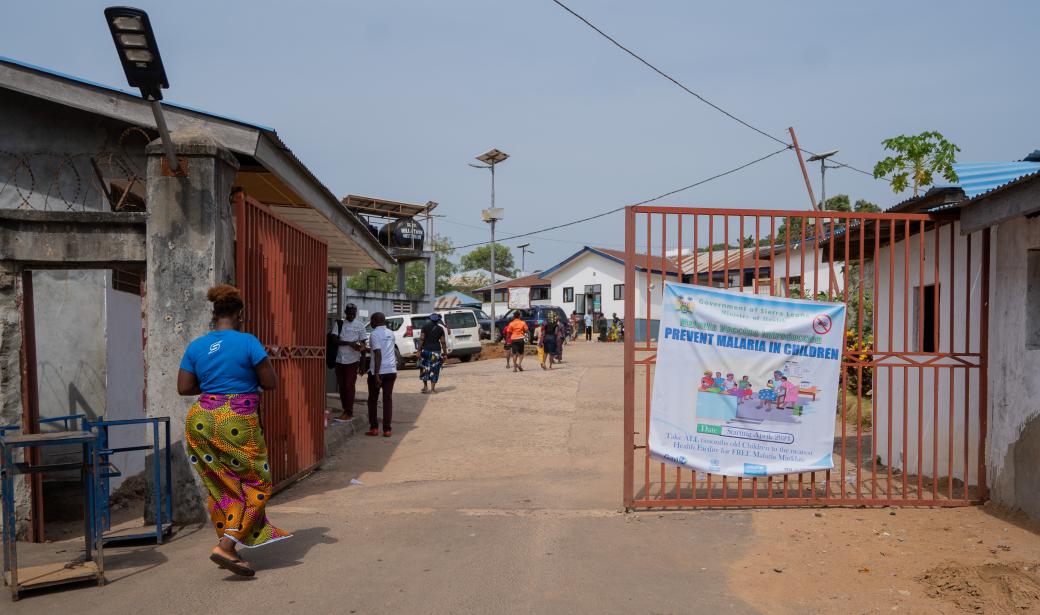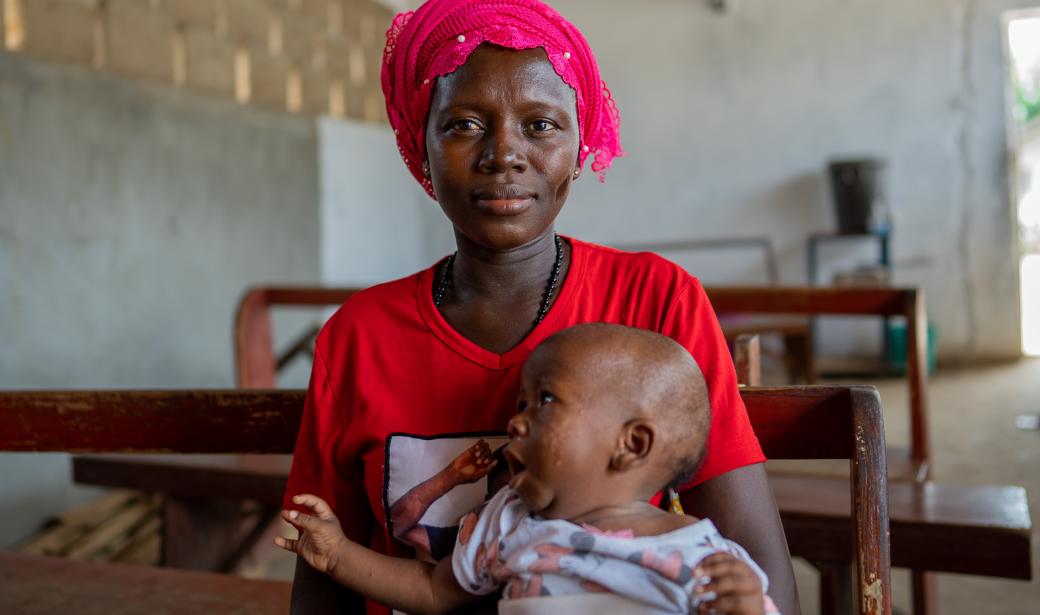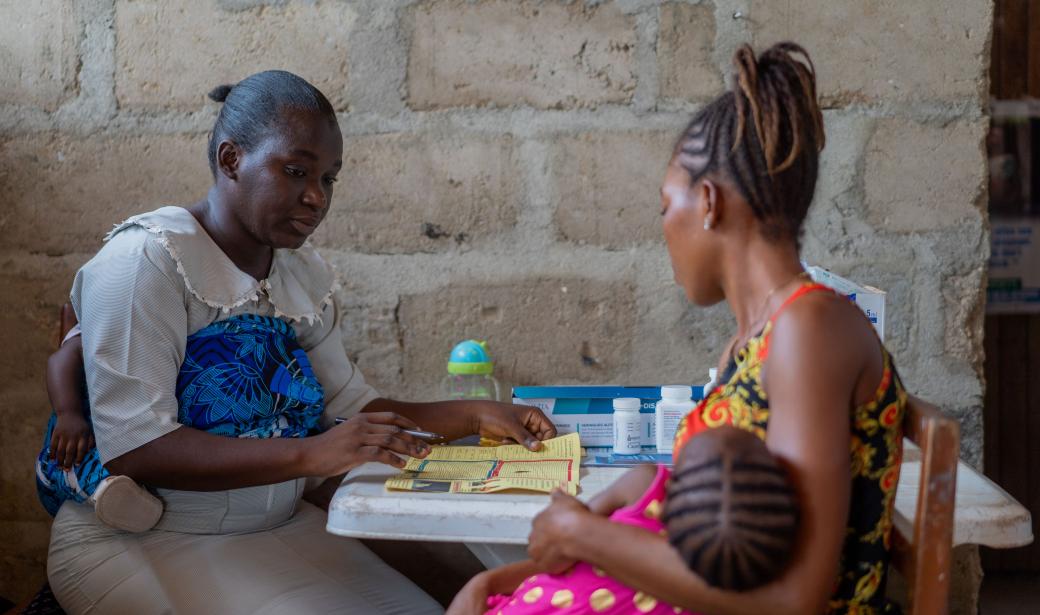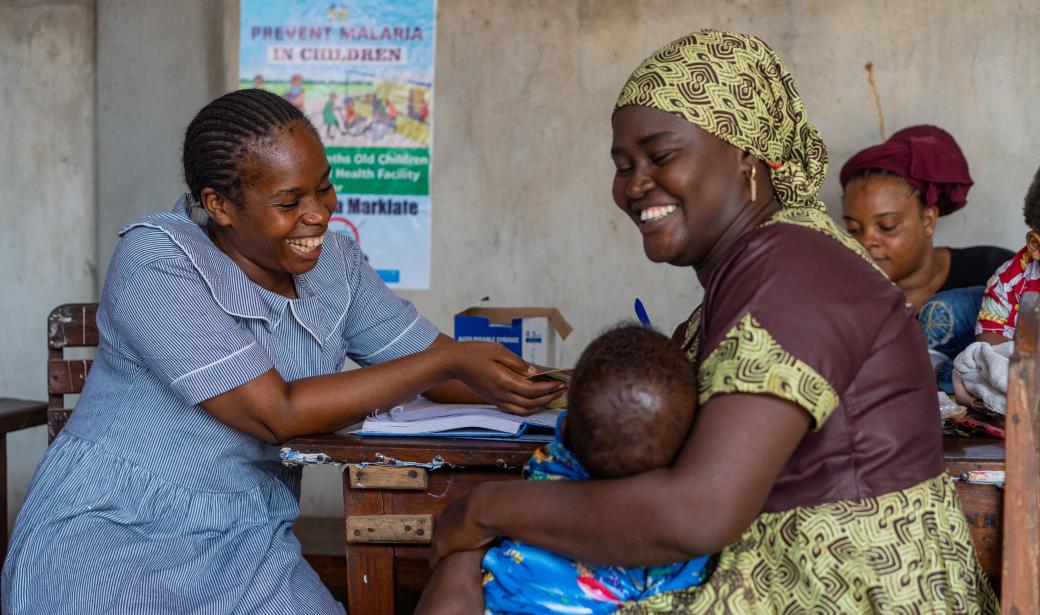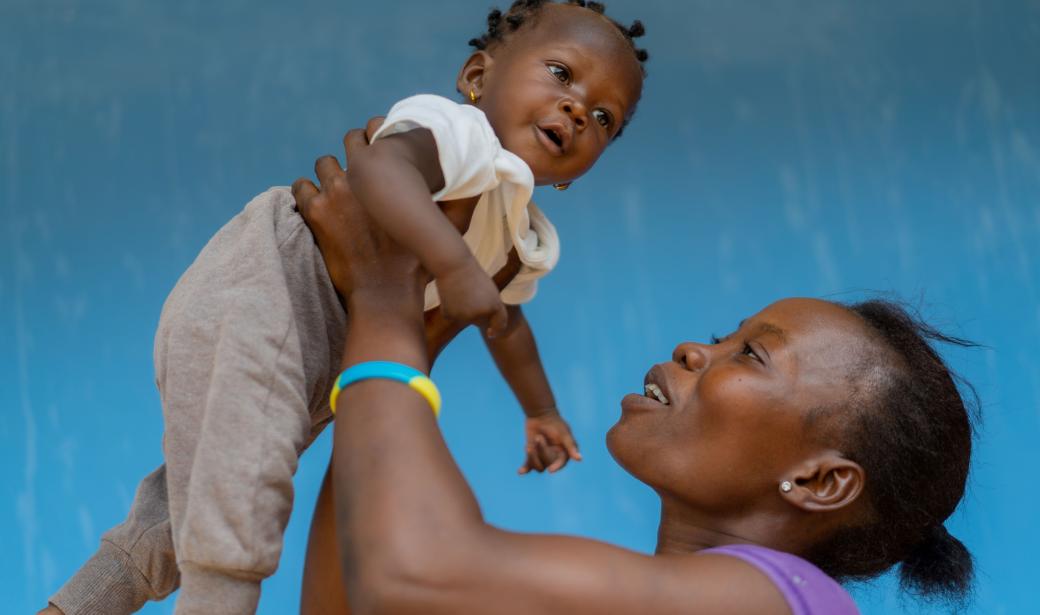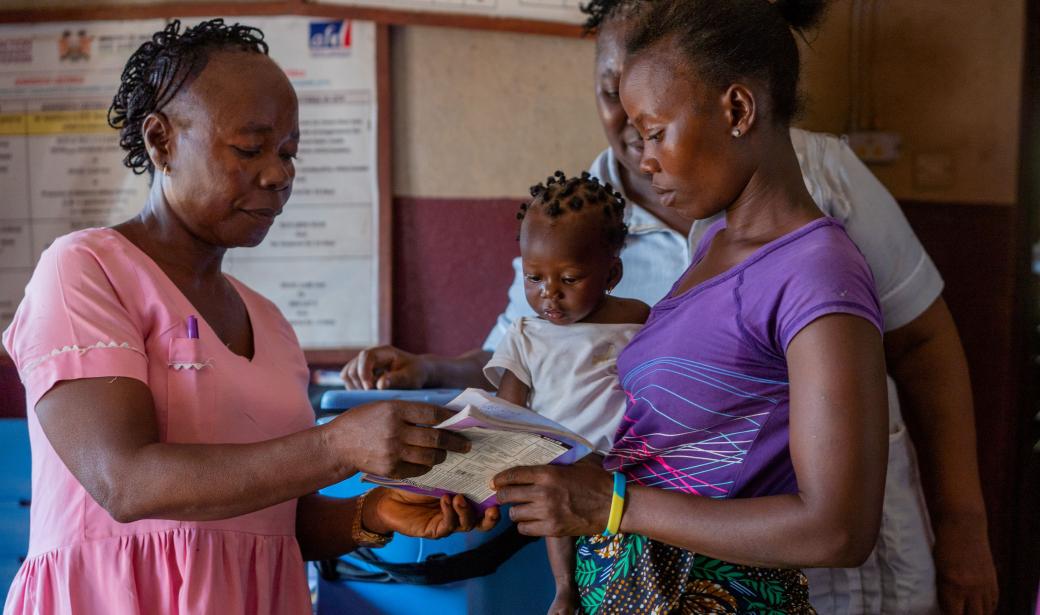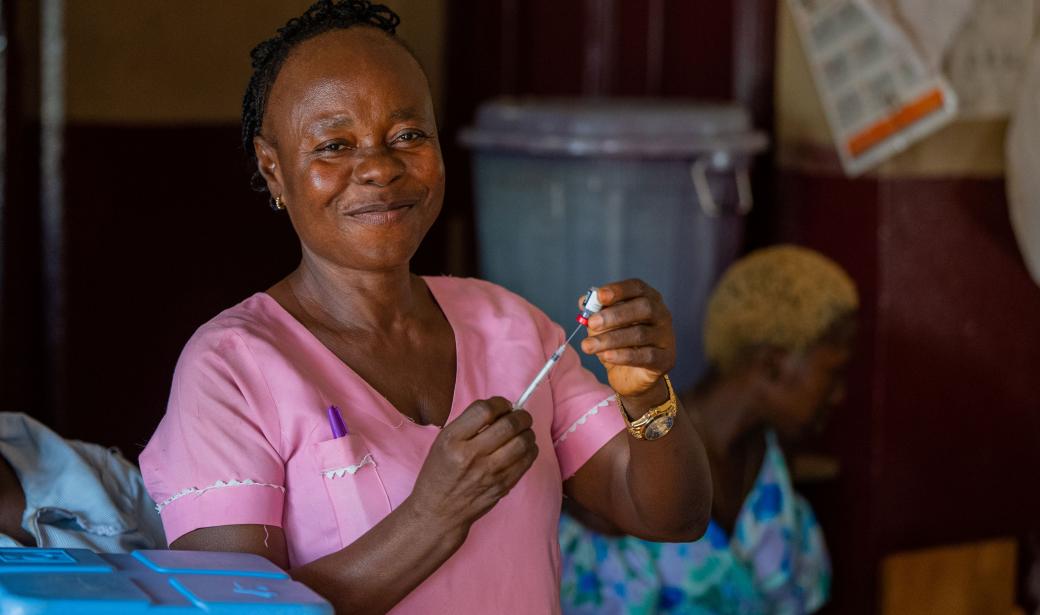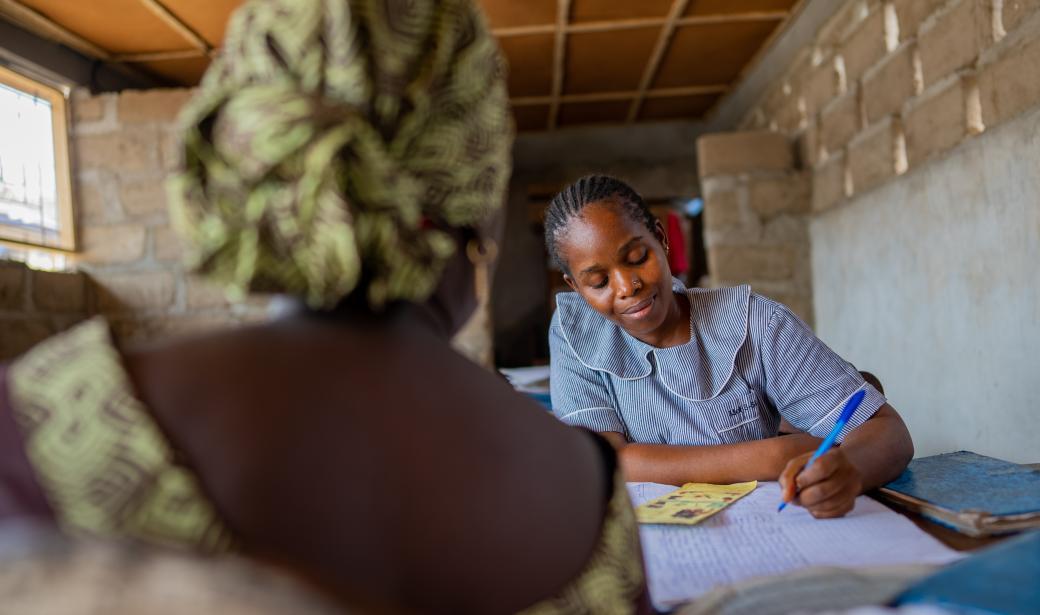Freetown ‒ Sierra Leone has one of the highest malaria burdens in the world, with more than 2 million hospital admissions a year, half of which are among children aged under 5 years ‒ accounting for 20% of deaths in this age group.
In addition to the existing tools in the fight against malaria, which include insecticide-treated nets, indoor spraying and effective diagnosis and treatment, two safe and effective vaccines ‒ RTS,S/AS01 (RTS,S) and R21 ‒ have been recommended by World Health Organization (WHO) to prevent malaria in children.
In late April 2024, the Government of Sierra Leone, with support from WHO and other partners, launched its first-ever malaria vaccination campaign. The introduction of 550 000 doses of the RTS,S malaria vaccine marks a pivotal moment in the fight against malaria in the country. The vaccine campaign was recently rolled out across 15 of the country’s 16 districts, targeting 6-month-old babies, who are at high risk of malaria-related mortality.
Since 12 April 2024, a new element has been added to the routine: administering the malaria vaccine to 6-month-old babies. It was in this same district that Mariama Jalloh became the first child in Sierra Leone to be vaccinated against malaria.
“Malaria has been disturbing my child, she is always sick with a high fever and I’m always worried,” she says. “As my child falls sick, her temperature becomes high and she becomes pale. Malaria is tormenting us in this community and in this country. It’s a threat to our children.”
The vaccine is another tool in the fight against this disease, in combination with insecticide-treated nets, effective diagnosis and treatment and indoor spraying, says Minister of Health, Dr Austin Demby. “With the new, safe and efficacious malaria vaccine, no child should die from malaria infection,” he says.
Cynthia Ernestine Reffel, focal person for the Expanded Programme on Immunization (EPI) at Waterloo Community Health Centre, was trained to counsel parents on the safety and efficacy of the vaccines. “We were taught about the age categories, how to administer the vaccine, when and how to give the vaccine to the children and what to tell their mothers as well,” she says.
Kargbo heard about the vaccine through outreach programmes, where health workers visit communities and conduct house-to-house sensitization to encourage parents to visit the health centre and have their children vaccinated.
“When I heard about the malaria vaccine, I was happy. I know after taking the malaria vaccine, all my stress will now go away and I thank God for that,” says Kargbo.
Amara continues to promote prevention methods and encourages parents to use mosquito nets.
“Anytime we come to the health centre, they ask us if we use bed net and continuously remind us to use them. I was given two bed nets. I use one for myself and my baby and the other one for my other children,” says Kargbo.
“WHO is proud to support this important milestone in Sierra Leone’s efforts to reduce the burden of malaria,” says Dr Innocent Nuwagira, WHO Representative in Sierra Leone. “This will help to reduce child mortality and better health outcomes for under 5 children.”
“As a health worker I’m so happy for the vaccine and it’s free. I want to thank the government and partners for what they have done for the people of Sierra Leone,” says Reffel.
WHO Sierra Leone
Email: sharkahm [at] who.int (sharkahm[at]who[dot]int)
Communications and marketing officer
Tel: + 242 06 520 65 65 (WhatsApp)
Email: boakyeagyemangc [at] who.int (boakyeagyemangc[at]who[dot]int)



